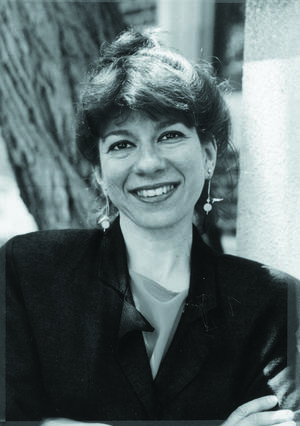Susannah Heschel
Twenty years ago, writing about Judaism from a feminist perspective, rather than discussing women from “Judaism’s” point of view, seemed audacious. In gathering the essays that eventually became On Being a Jewish Feminist, I sought self-consciously feminist interpretations that would address topics only rarely, if ever, discussed in print in those days – such as wife abuse in the Jewish community, Jewish lesbian identities, the gendered language for God in our liturgies, and theologies.
The book’s publication in the fall of 1983 appeared to many as far too radical, while for many women it was a watershed, a moment when they became feminist Jews. I was invited (and sometimes disinvited) to speak at Jewish book fairs and community gatherings, where the audiences lagged far behind the consciousness of feminist Jews. My talks became less information-based lectures than consciousness-raising sessions.
Sometimes I was surprised at the reactions. An Orthodox radio broadcaster told me he was fascinated to read about Jewish lesbian issues, never having had the chance to do so before. The combination of articles dealing with religion and secular Jewishness gave the book wide appeal, and it also underscored the many kinds of Jewish identities we have today. Not enough attention was paid, perhaps, to the issues facing women in Israel, nor to the elderly, widows, and others whose marginalization within Jewish life are extensions of patriarchal models of power and hierarchy. Yet soon enough, an explosion of books, popular and scholarly, began to appear and extended and refined feminist scholarship on Jews and Judaism.
When I read psychoanalyst Mortimer Ostow’s keynote address to the Conservative movement, published in 1974, arguing that women should not be ordained rabbis (nor even called to the Torah for an aliyah) because it would damage men’s psyches, I spent days pacing the floor, in a state of utter rage.
With the publication of my book, I began to experience an emotional change as a feminist: my rage turned to laughter at the absurdity of sexism and its defenders, and I felt energized by the constructive efforts of those working for change. The extraordinary possibilities that were created for Jewish women – though hardly sufficient – meant that some of the horrors I had experienced would never confront future generations: there will never again be a time when a Jewish woman will be unable to find a minyan (prayer quorum) that will welcome her to say kaddish (mourner’s prayer). Still, I am not entirely comfortable: I am not reassured that a male will not be invited as the keynote speaker at a conference debating women’s rights. Women are still marginalized, men remain patronizing, and commitments to feminism seem to be receding under the Bush regime even as feminism itself is “domesticated.”
Susannah Heschel is the Eli Black Associate Professor of Jewish Studies in the Department of Religion at Dartmouth College. Her scholarship focuses on Jewish-Christian relations in Germany during the 19th and 20th centuries, and her numerous publications include a prize-winning monograph, Abraham Geiger and the Jewish Jesus (University of Chicago Press), which won a National Jewish Book Award, and a forthcoming book, The Aryan Jesus: Christianity, Nazis and the Bible (Princeton University Press). She has also edited several volumes, starting with On Being a Jewish Feminist, published in 1983, and more recently, Betrayal: German Churches and the Holocaust, with Robert P. Ericksen, and Insider/Outsider: American Jews and Multiculturalism, with David Biale and Michael Galchinsky. Several years ago she published a volume of her father’s essays, Moral Grandeur and Spiritual Audacity: Essays of Abraham Joshua Heschel, with a biographical introduction.






Hi Suzannah can you please provide references to your dad's essays and views on Zionism, and especially, relationship with Martin Buber. I went to UTS/M.Div '69. Met him briefly as a student. Given current Gaza horror I wonder about his views on a Jewish Homeland v. Palestinians. Thanks, ronphillips262@gmail.com
Dr.Heschel,
I got to your page after hearing Cornel West repeatedly mentioning your late father’s name. I looked him him up, read his words and was happy I did. ( was that a mitzvah from your dead dad?) I saw your name and was curious. I was pleasantly surprised to see you had written a landmark book on Jewish feminism. On religious Jewish feminism, which seems like an oxymoron, if you will pardon me saying so?
I was raised in Washington Heights in the farthest reaches of NYC. My parents were from Ireland and as Catholic as the Pope. But, in our building all faiths were represented. In hindsight, I’m not surprised as there was an Orthodox temple, a Greek Orthodox Church and a Protestant church on our street. My brother was the
Shabbos goy. I’m fairly certain I was the only one reading the “Feminist Mystique” in that building!
We are the same age,64, so I speak of New York in the early 60’s. All the women of that time had were their wits and the age old ways used to get around men’s egos. Thank you for writing this. I look forward to reading it!
Kayne Tuohy
PS Im sure your father is very proud of you!
I
we are the same age
I am trying to obtain permission to quote from book titled: The Sabbath by the father of Susannah Herschel. Aronson. I can be reached at the email address presented.